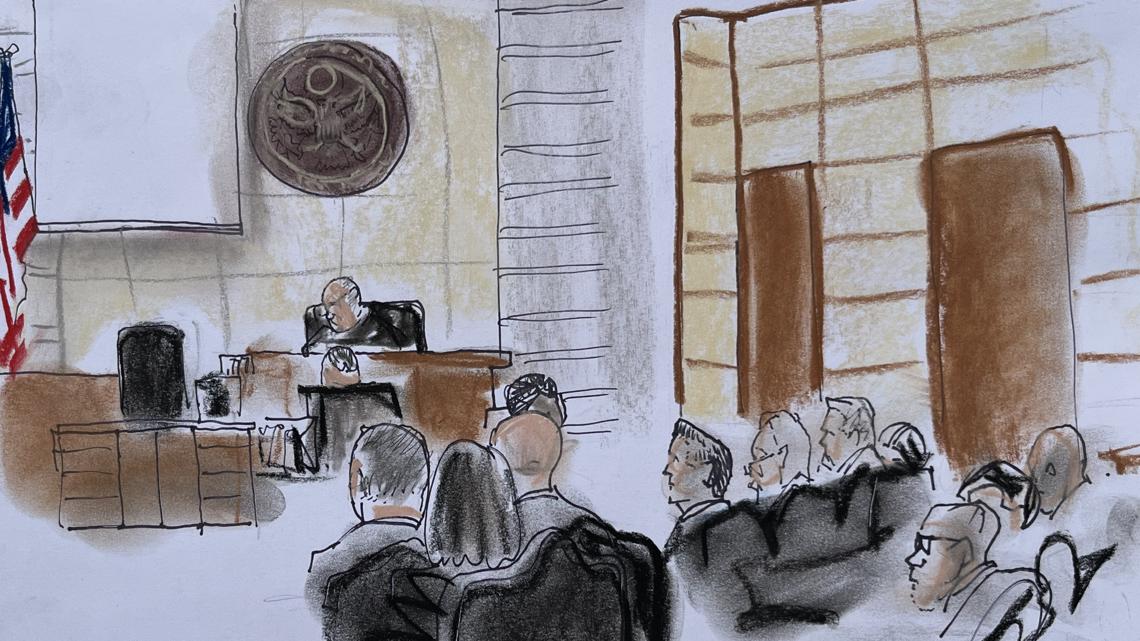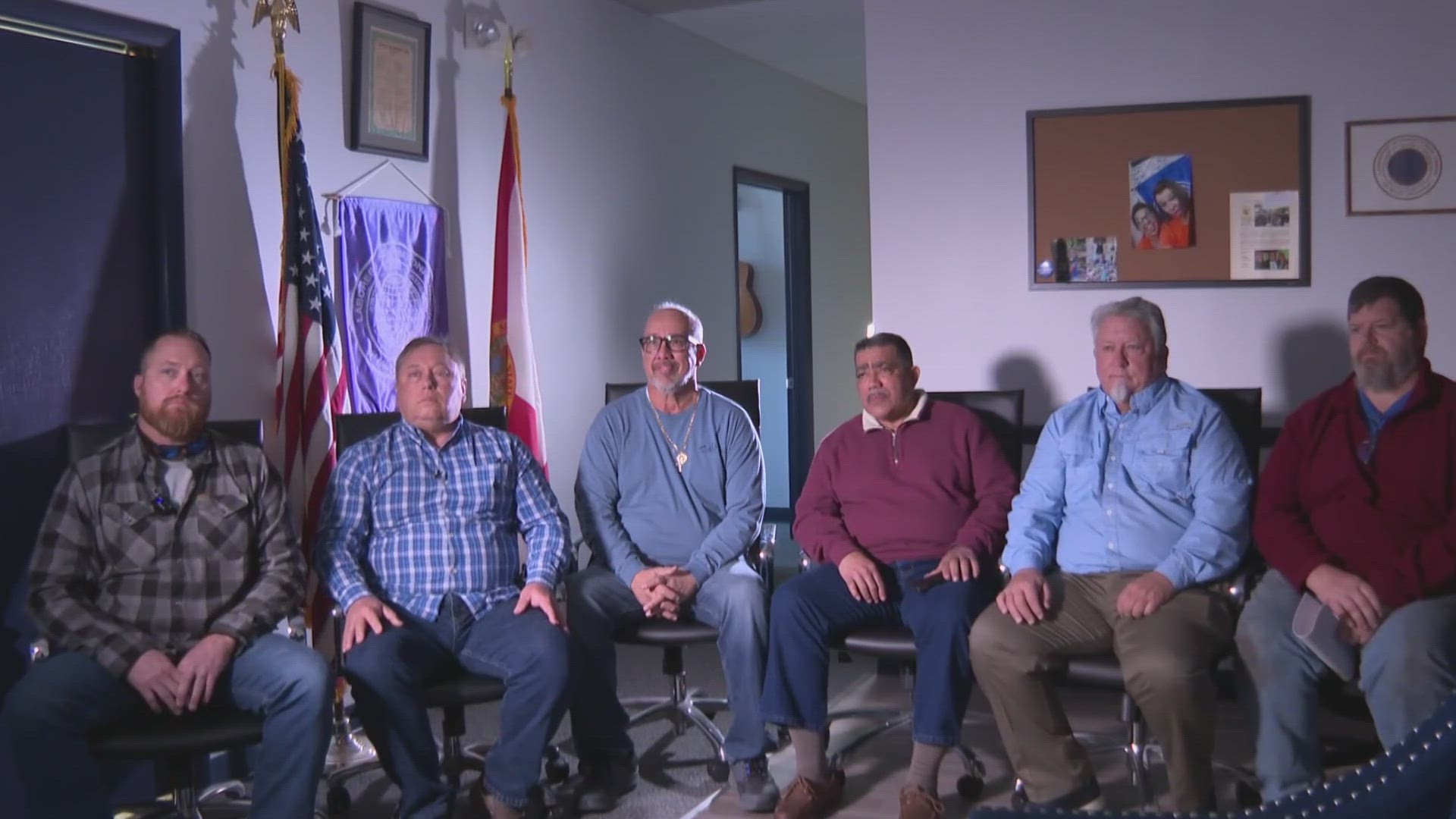JACKSONVILLE, Fla. — Former JEA CEO Aaron Zahn and former CFO Ryan Wannemacher went to trial Wednesday in federal court, in what has been called the largest fraud case in Jacksonville history.
The two executives are accused of masterminding a plot to privatize sell JEA -- the largest public utility in the state of Florida -- and skim a profit off the top. Prosecutors say it's a scheme that could have stolen millions of dollars from Jacksonville taxpayers.
The charges are conspiracy and wire fraud. The two will be tried together, but with separate juries.
A federal indictment alleges they worked together from March 2019 through November 2019 on a bonus plan that "would have paid hundreds of millions of dollars in bonuses, primarily to the top JEA executive including themselves" if JEA was sold.
Here's what happened on Day 1.


Recap of the day
9:05 a.m.: Judge Brian Davis, presiding over the case, announces one juror is sick and has been excused, but the jury will move forward. Davis says the Wannemacher jury will be excused for Zahn's team's opening statement and Zahn’s will be excused for Wannemacher's opening statements. Zahn’s attorneys want to keep this ruling, but Wannemacher’s want their jury to hear Zahn’s opening statements. The judge agrees, so Wannemacher's jury stays in the room for Zahn's opening statement.
9:40 a.m.: Judge calls recess until 10:15 to “collect the jury."

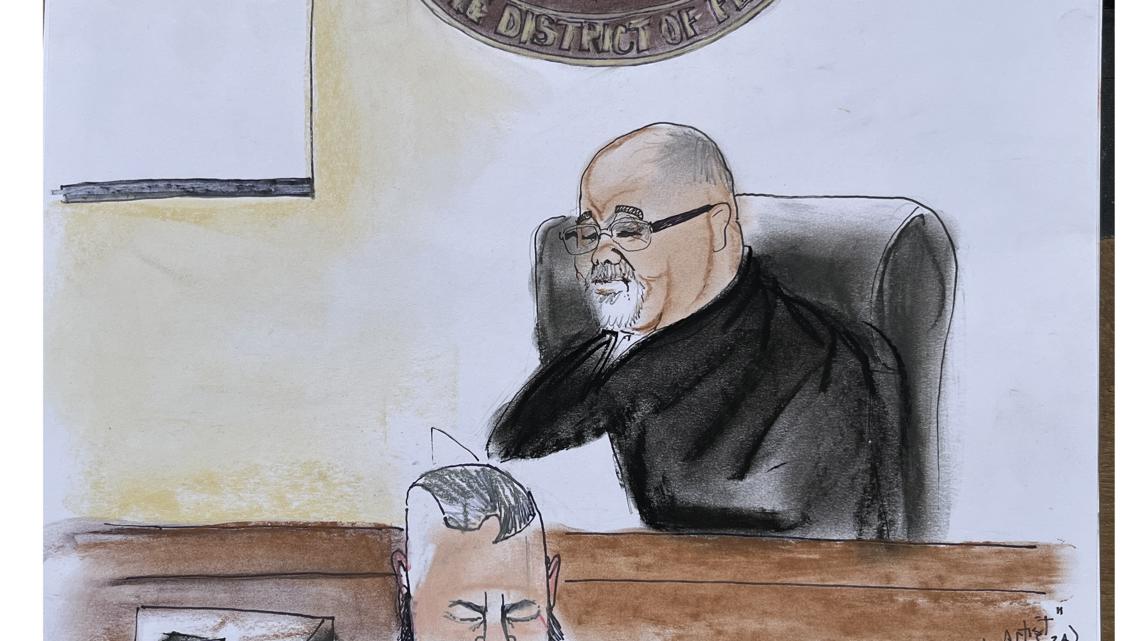
10:20 a.m.: Court back in session, Davis reminds the juries that they are separate. The juries are sworn in separately. Court says jurors cannot speculate as to the reason that they, or the other jury, has been removed from the courtroom at any given time, or speculate about why there are two juries.
10:46 a.m.: Federal prosecutor opening statement
Assistant State Attorney Tysen Duva gives the first opening statement. The prosecution says Zahn and Wannemacher lied and deceived to steal millions. "They were gonna walk out the back door with hundreds of millions of dollars in their pocket."

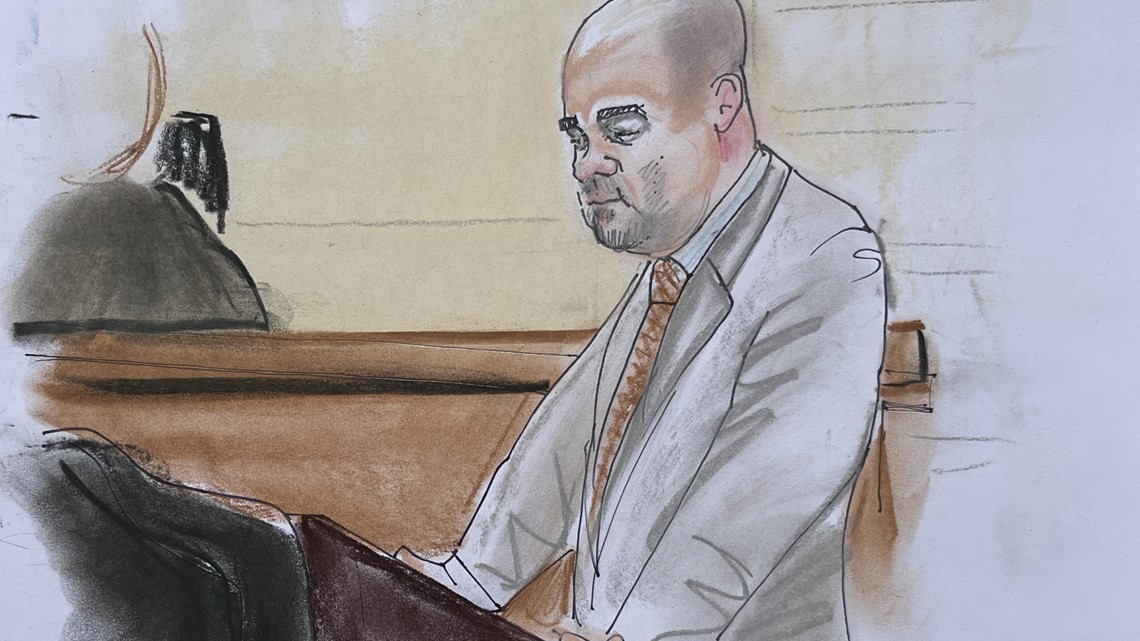
11:29 a.m.: Zahn’s opening statements begin
The defense for Zahn, Eddie Suarez, gives his opening statement. He says that Zahn was brought up as a young upstart with fresh ideas, a "young, visionary leader" who was coming up with innovative ideas, which was what the board wanted him to do. He said that the approval process for this plan was very thorough and that any "scheme" would never have survived. He stressed that the proposed plan was approved by lawyers and other consultants, before it was later killed by the General Counsel. Zahn's defense throughout this case has been that the whole plan was approved by lawyers and he was following legal advice.

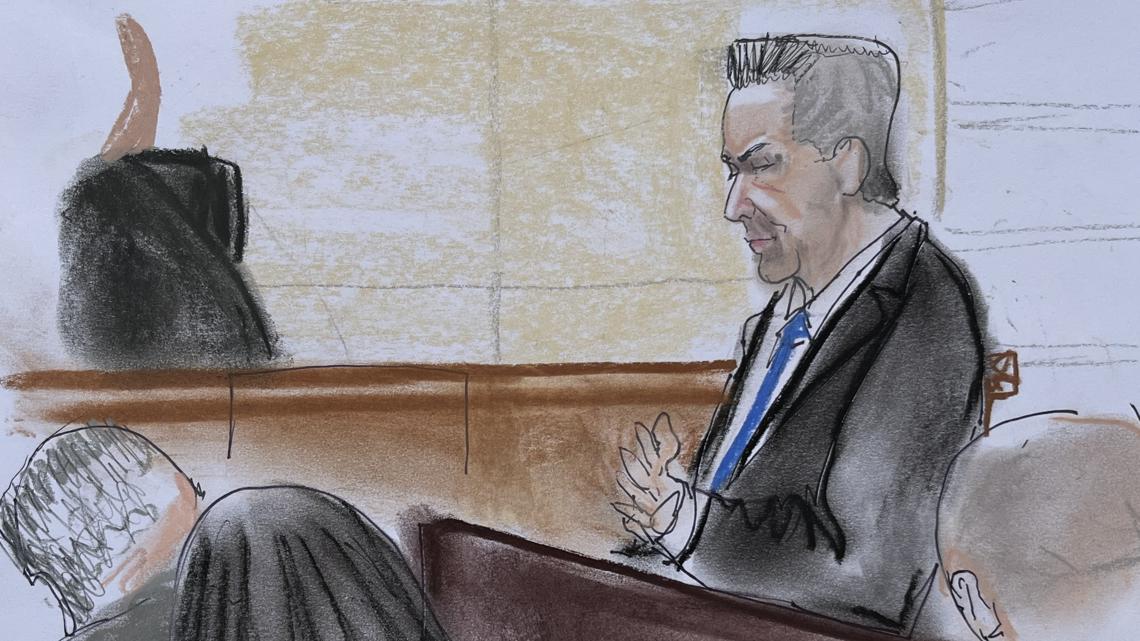
12:12 p.m.: Zahn’s attorney creates list a on an easel to show the jury the steps it would take to pass the plan, stressing how difficult it would have been for Zahn to fool everyone at each level of vetting.
12:20 p.m.: Zahn's attorney leaves the stand.
12:23 p.m.: Wannemacher's attorney, Jim Felman, asks for a mistrial because the federal prosecutor called the use of two juries "strange" and they do not want the jury speculating about why they have been split. (In the judge's jury instructions, he specified the jury should not speculate about why there are two juries.) Zahn's attorney agrees. The judge says that this is indeed a strange case, so the prosecutor did not imply anything untoward and denied the motion.


12:30 p.m.: The juries are dismissed for lunch. Wannemacher's jury will return at 1:30 p.m. for his attorney's opening statements. Zahn's jury will be excused for that statement as decided earlier, and return at 2:30 p.m.
- 1:30 p.m.: Court back in session, Wannemacher’s attorney Jim Felman's opening statement begins. Felman provides slideshows with pictures of board members, explaining to the jury who each person is. He also shows pictures of attorneys involved, the Office of General Counsel, the city auditors and virtually everyone involved in the case. Felman lists the qualifications and strengths of each of these people. He stresses that Wannemacher would have to fool all of these people in order to commit the scheme he is accused of. He explains how Wannemacher was asked to formulate projections for a potential sale and the math involved, repeatedly saying that the math is "easy" and anyone can do it. He says that Wannemacher was working with projections based on theoretical numbers.
- 2:30 p.m.: Wannemacher’s attorney shows a video tape of a JEA meeting where the PUP program was approved
- 3:04 p.m.: Wannemacher’s attorney wraps his opening statement

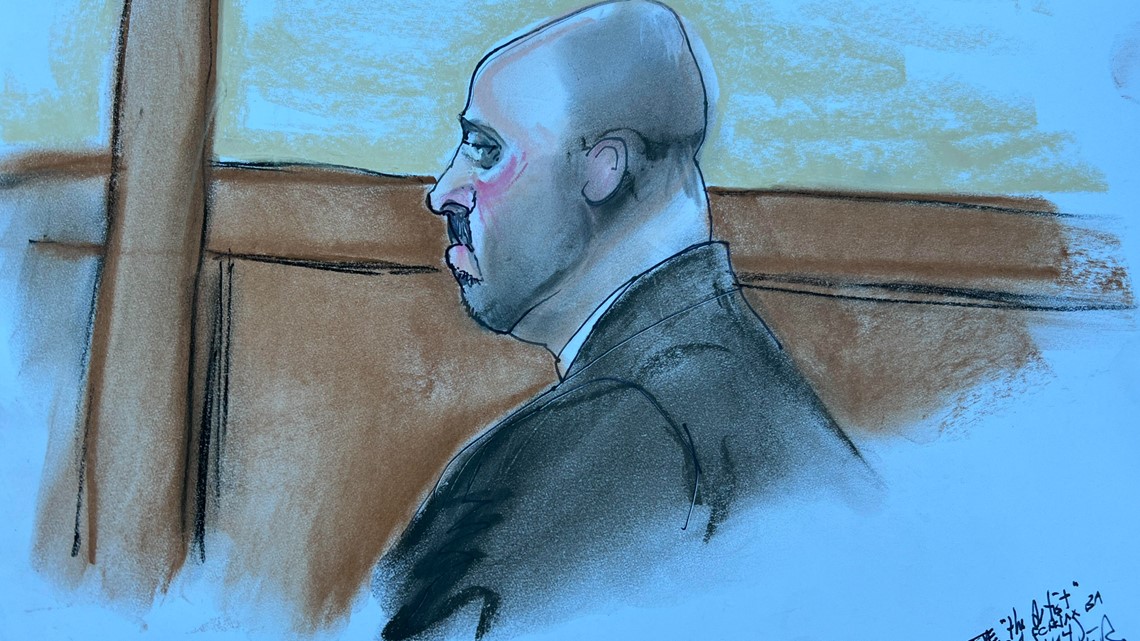


- 3:22 p.m.: Zahn’s legal team challenges an earlier statement made by the prosecution about the financial state of JEA based on McElroy’s appraisal and ratings. Prosecution says these figures are accurate and this challenge “sounds like cross examination.” The judge overrules this objection.
- 3:23 p.m.: Prosecution calls Paul McElroy, former JEA CEO, who introduces himself and his experience to the jury. Both the defense and prosecution discussed McElroy’s ousting from his position due to political pressure and differences of opinion with then-mayor Lenny Curry. Zahn initially became interim CEO after McElroy left.


- 3:33 p.m.: McElroy testifies about the history of JEA, the way JEA works how the board is elected, who owns it, the board’s responsibilities, the difference between private and municipal utility, explains that the board appoints the CEO
- 3:37 p.m.: Exhibits provided to coincide with McElroy’s testimony that show the following basic information:
- JEA is the City of Jacksonville's biggest and most important asset
JEA provides water and electricity to Duval County and small portions of Nassau County and St. Johns County
Multi-billion-dollar municipal authority, exempt from property taxes
Donates approximately $120 million to the COJ’s general fund yearly
JEA is governed by a seven-member Board of Directors appointed by the Mayor and confirmed by the City Council
3:51 p.m.: McElroy testifies about the "Plant Vogtle issue", explaining that JEA entered into a purchase-power agreement, that once the units were built and operating, JEA would buy energy from them for a 20 year period. This is important because the plan with Plant Vogtle has been cited as a source of financial pressure on JEA, part of why executives said it would be a good idea to sell. He testified that the cost has now doubled and it’s taken significantly longer to build the plant, but once the plan is in action, 13% of JEA’s energy will come from nuclear.
Slides provided explain the following about the Plant Vogtle agreement:
Nuclear Power Plant in Waynesboro, Georgia
Operated by MEAG (Municipal Electric Authority of Georgia)
JEA entered into an agreement to purchase power from MEAG for 20 years in 2008
The project was over budget and behind schedule
Three units were live at Vogtle as of July 2023 and JEA is currently purchasing power from MEAG. Another is scheduled to be online in early 2024.
3:57 p.m.: McElroy testifies that the agreement with Plant Vogtle is not a debt.
4 p.m.: McElroy testifies about his time as CFO of JEA, which began in 2006. In 2006, JEA was in the middle of a “major buildout,” McElroy says, and talks about how he oversaw the utility over this time. He talks about how much JEA improved at this time.
4:24 p.m.: McElroy testifies that he hired Melissa Dykes and worked with Wannemacher. He praised Wannemacher’s performance and intellect. He also testifies about the shakeup at JEA when Lenny Curry became mayor.
4:30 p.m.: Testimony about the sale/privatization begins. McElroy is asked about the infamous proposal from Petway when he resigned in 2017.
4:33 p.m.: Prosecution shows a video where Petway says he has “eight things” to say to the board, and proposes that the customers of JEA and the people of Jacksonville may be better served in the private marketplace. Prosecution refers to this video as “the Petway mic drop.”
The eight things Petway lists are:
JEA is at or very near peak performance
JEA has assets which are operated by exceptional people
JEA has significantly improved the balance sheet
One of the most valuable assets of COJ
JEA’s success is built on a “tremendous amount” of money from the people of Jacksonville
Marketplace is vastly different than at JEA’s inception
Private sector is competitive and well-regulated
"I believe the board should evaluate where the JEA fits in this marketplace."
4:36 p.m.: McElroy testifies about being asked to seek a report on the market value of JEA. He discusses being asked about a report on the future/sale of JEA that was being distributed in February 2018, which he had no idea about at the time. He confirms to the prosecution that there were materials and rhetoric being spread around regarding selling JEA that he did not know about.
4:42 p.m.: McElroy testifies about tumultuous interactions between the city council president (name?) and Mayor Lenny Curry as JEA prepared to present a report on the potential privatization to the public.
4:46 p.m.: McElroy reads a report produced at the time, which shows that JEA was worth between $8 billion and $11.5 billion, a wide range. These costs were calculated by testing a wide range of market conditions. The report says it is “very possible” that the demand for JEA’s assets surpasses even these numbers. Net proceeds were predicted to be up to $6.4 billion, but this could also be higher, the report said.
4:50 p.m.: McElroy talks about tensions that grew between the mayor, city council and the JEA board around this time. He is shown documents that appoint Aaron Zahn to the JEA board in 2018, which he confirms are accurate.
4:53 p.m.: He discusses a meeting between him, the mayor and former city administrator Sam Mousa, ahead of the time both the prosecution and defense say he was ousted due to political pressure. He says the mood was hostile, and the conversation did not “really” have to do with his job. He said at this point, he felt that his job was “on the line.” McElroy then begins testimony about his experience with Aaron Zahn, who he said had a wealth of knowledge and ideas. He only met with Zahn once before his appointment. “He had suggested that he could be an intermediary between the administration in JEA,” McElroy said. Zahn’s connection to Mayor Lenny Curry is often referenced as the reason he was appointed to the board. McElroy says he was “neutral” about the choice to appoint Zahn to the board.
4:57 p.m.: McElroy testifies that he and former-COO Melissa Dykes were asked to prepare material for a workshop in 2018 to provide information on potential privatization. The prosecution plays a video of the workshop meeting, which took place in March 2018. In the video, McElroy says that Petway’s proposal is causing turbulence for employees, and JEA would like to move through discussions quickly to end the discomfort.
5:11 p.m.: The next clip shown during McElroy's time on the stand shows Aaron Zahn speaking at this meeting, which was his first board meeting. He says that electrical sales have decreased by 10% and water sales have decreased by 10%. "There's a philosophical challenge I think this board really does have," he says. "Why are we having this conversation?"
5:18 p.m.: Video is shown of Zahn in the same meeting. He says new challenges face JEA and proposes creating a new plan for moving forward in the next 10 years. McElroy testifies JEA had in fact already created a strategic plan for the next ten years (from 2018 to 2028), so this was not a "new or novel idea." In the video, Zahn says he does not believe existing plans are sufficient as the future of utilities changes.
5:24 p.m.: McElroy discusses being pressured to resign. He leaves the stand for the day as time runs out.
5:29 p.m.: Court is set to resume Thursday at 9 a.m.

